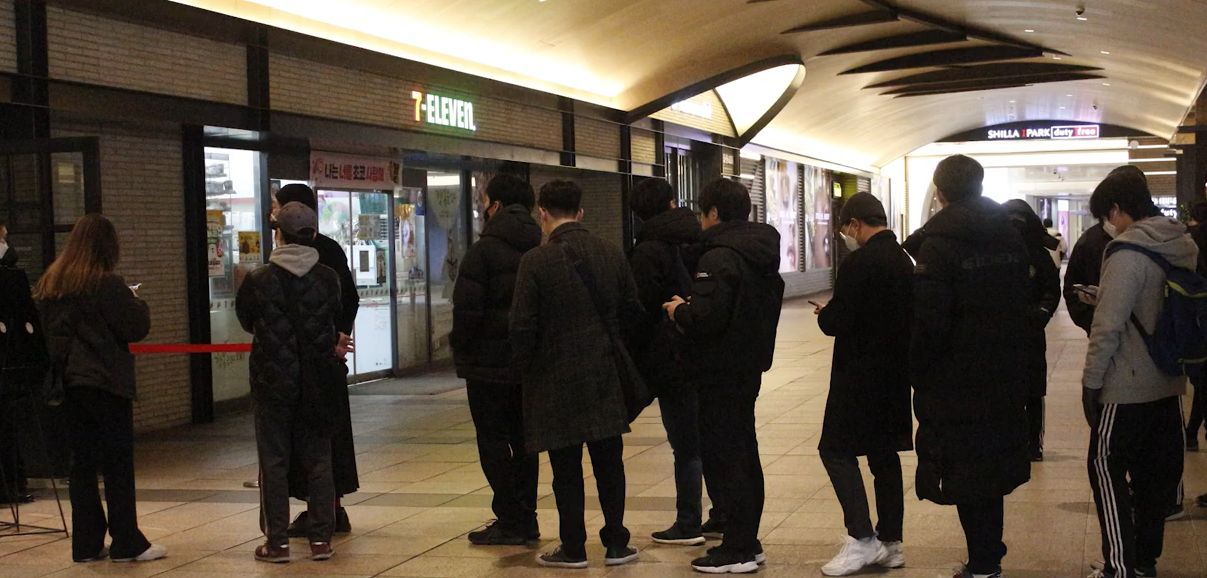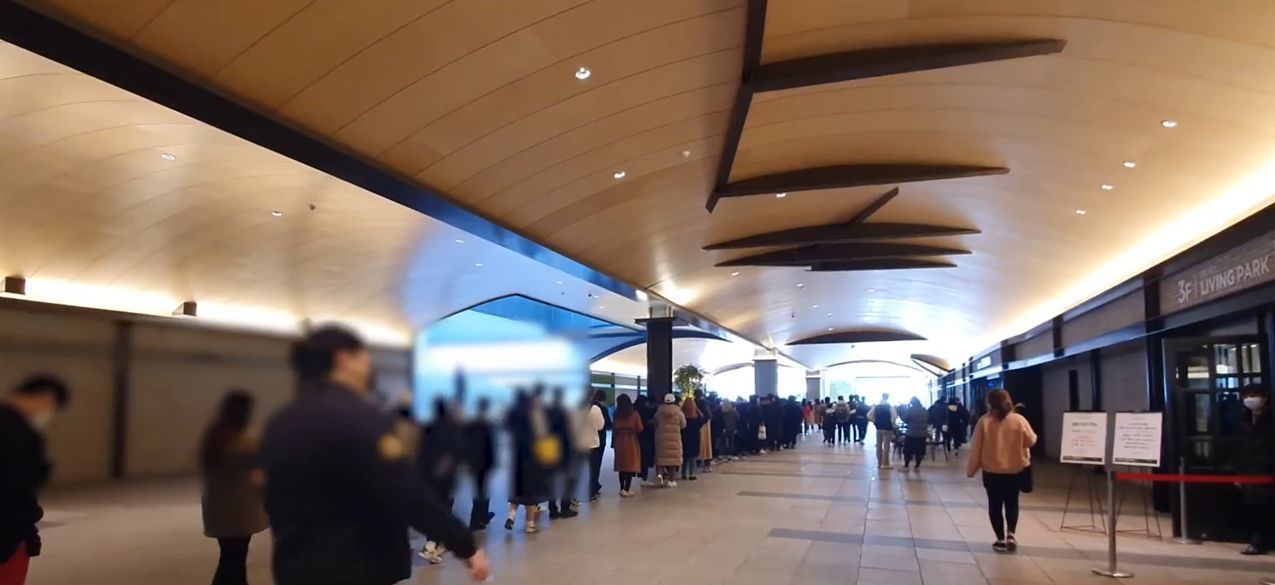 |
Nintendo’s Animal Crossing (Nintendo) |
The explosive demand for Nintendo Switch video game console in South Korea has reignited debate about the selective approach to boycott of Japanese products by local citizens.
According to Korean game distributor Daewon Media on Tuesday -- which retails more than half of Nintendo’s products here -- demand for the console has spiked following the recent release of Animal Crossing: New Horizons.
Nintendo is a multinational video game giant headquartered in Japan, with offices in the US and Germany.
“Due to a recent surge of customers, Daewon Media’s online website and customer support center are experiencing delays. However, we cannot provide specific information on when exactly sales of Nintendo Switch will resume, as stocks are currently sold out,” the company said.
 |
Customers line up to buy the Animal Crossing edition of the Nintendo Switch at IPark Mall in Yongsan, Seoul. (Captured from YouTube) |
The market response has led some to quip that the console is as difficult to obtain as facial masks in Korea amid the coronavirus pandemic, buoyed by the popularity of social simulator Animal Crossing. On Animal Crossing: New Horizons’ day of release March 20, more than 2,000 people lined up at Daewon Media’s offline store in IPark Mall in Yongsan, central Seoul, to purchase special editions of the Nintendo Switch. Only 70 were in stock, according to media reports.
The sharp supply shortage has drove up the price of the Animal Crossing edition to as high as 915,000 won ($750) on Naver Shopping, compared to the 483,000 won listed price at Daewon Media’s online store.
“Nintendo Switch’s Animal Crossing editions are currently traded at much higher prices online than the normal price due to the acute supply shortage following the production setback in China due to the COVID-19 outbreak,” said a researcher from SK Securities.
 |
Customers line up to buy the Animal Crossing edition of the Nintendo Switch at IPark Mall in Yongsan, Seoul. (Captured from YouTube) |
However, the Nintendo boom hasn’t been entirely well received in Korea, as bitter public sentiment lingers toward Japan, with an ongoing boycott of Japanese products stemming from a trade spat that dates to last summer. It had even become taboo to play the Nintendo Switch publicly.
From March 30 to April 5, comedian Yoo Min-sang uploaded a series of YouTube videos playing Animal Crossing, which later drew a barrage of criticism over his failure to participate in the boycott.
Contrary to the sudden surge in demand for Nintendo products, the hostility and boycott against Japanese products -- as well as those using them -- has continued, particularly in the fashion and automobile industries.
According to the Korea Automobile Importers and Distributors Association, Japanese automakers sold 1,406 vehicles in March here, a 67.8 percent drop on-year, while overall foreign car sales increased by 12.3 percent to 18,078 in the same period.
Toyota and Lexus sold 413 and 411 cars in March, respectively, suffering a 54.8 and 70 percent drop in sales on-year. Nissan, Honda and Infiniti sold 285, 232 and 65 cars, respectively, witnessing declines of 25.4, 84.1 and 72.6 in the same period.
Meanwhile, casual clothing Japanese chain Uniqlo, most affected by the boycott here, is planning a restructuring here as sluggish spring sales amid the COVID-19 outbreak have exacerbated its business difficulties.
In the aftermath of the boycott, 2019 revenue of FRL Korea, which operates Uniqlo here, saw a 31.3 percent drop on-year to 974.9 billion won, missing the 1 trillion mark for the first time since 2014.
FRL Korea CEO Bae Woo-jin sent an email -- that mistakenly went to all employees -- to the chief of the human resources department to “proceed with the personnel reshuffle as planned without any problems.”
If there is an exception, Japanese beer brands are gradually recovering in Korea, with monthly imports recording $126,000, $264,000 and $648,000 respectively in January, February and March, according to Korea Trade Statistics Promotion Institute.
Sales of Japanese beer have nose-dived since the boycott started in July, witnessing drops of 52.2 percent, 88.5 percent, 92.2 percent, 91.7 percent, 93.1 percent and 93.8 percent on-year in July, August, September, October, November and December, respectively, according to Korean convenience store chain CU.
By Kim Byung-wook (
kbw@heraldcorp.com)









![[Weekender] Korea's traditional sauce culture gains global recognition](http://res.heraldm.com/phpwas/restmb_idxmake.php?idx=644&simg=/content/image/2024/11/21/20241121050153_0.jpg)
